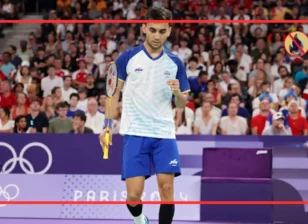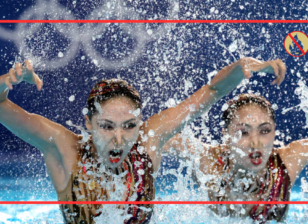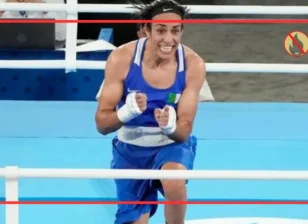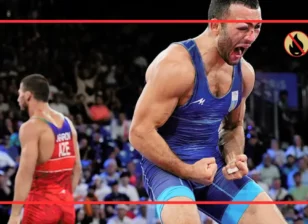Confronting Tensions: Protests and Bans in the Shadow of the Paris Olympics
There is no denying the fact that international sporting events are meant to promote unity and fair competition among the global community. But the recent rise in protests in France against police violence has overshadowed this fundamental essence of sports as the Paris Olympics 2024 is just a year away. The tragic killing of a teenager by French police on June 27 has sparked discomfort and frustration among the people of France. To cast the shadow of silence, French authorities laid a ban on protests against police. Despite the ban on protests, thousands of people gathered on streets in central Paris and other cities to demonstrate their concerns over alleged police brutality and racial discrimination. These developments have a significant effect on the upcoming mega event that Paris will be hosting in 2024. This analysis offers a brief but detailed discourse on the events surrounding the protests, their connection to the preceding occurrences of police brutality, and the calls for change from human rights groups and citizens.
The Spark: The Killing of a Teenager of Arab Descent
The protests began after the killing of a 17-year-old boy who belonged to Algerian and Moroccan regions, identified as Nahel M. When the incident occurred, the teenager was driving a sports car without having a driving license. The shooting by traffic police led to massive public outrage, with so many questions being raised about the actions and intentions of the police officer. The investigations against the officer have been initiated for voluntary homicide. However, the lawyer of the accused officer states that he did not intend to kill the teenager. This is the major dilemma being faced by the whole law and enforcement system in France.
Defying the Ban: Thousands Protest Against Police Violence
Despite the authorities having imposed a ban on protesting against police violence, thousands of French protesters rallied in Paris and other cities in France. The basic motives of these protests are denouncing police violence and demanding justice for the young boy, Nahel M. Apart from this, the ban on protests was largely criticized by the protesters arguing that it condensed their right to freedom and assembly. Some of the rallies were organized by the family of Adama Traore, a Black Frenchman who was killed in 2016 in the force’s detention under similar circumstances to the killing of George Floyd in the United States of America. The protesters expressed their grief and anger over racial discrimination particularly practiced by police, predominantly with reference to the working-class neighborhoods.
International Attention and UN Involvement
The ongoing protests in France have drawn the attention of international bodies, and human rights groups. One of the major organizational critics is the United Nations Committee on the Elimination of Racial Discrimination (CERD). In regard to these prevailing issues, the human rights body has shown its concerns about the use of racial and cultural appearance coupled with the excessive use of force by law enforcement agencies against minority groups, especially those of African and Arab descent. Moreover, the Committee has urged the French government to present and pass legislation that abstains from banning racial profiling. However, the authorities in France, including President Emmanuel Macron, have refuted the accusation of institutional discrimination within the framework of law enforcement agencies in the country.
Controversial Reactions and Far-Right Connections
In response to the protests, far-right parties in France have linked the mass migration to the riots and called for stricter immigration policies to be adopted to curtail such events to happen in the future. This reaction has added to the complexity of the situation and further fueled public debates on concerns of race, immigration, and police behavior in France. These kinds of controversial reactions not only stain the image of a country but also damage the very essence of international sporting events like the Olympics.
Conclusion:
The ongoing demonstrations against Police brutality in France remind France of the impending social problems, as the focus of global attention turns to the upcoming Paris Olympic Games in 2024. Concerns about racial appearance, excessive use of force by law enforcement agencies, and institutional racism have been highlighted after the killing of Nahel M. In order to move forward as a cohesive and inclusive society, the French government must engage citizens in open dialogue, resolve grievances, and ensure inclusivity to effect meaningful change. These steps will not only bring peace and harmony to France but also lead to the successful management of the Paris Olympics 2024. Hence, France must confront these issues head-on to pave the way for a more just and equitable future.





